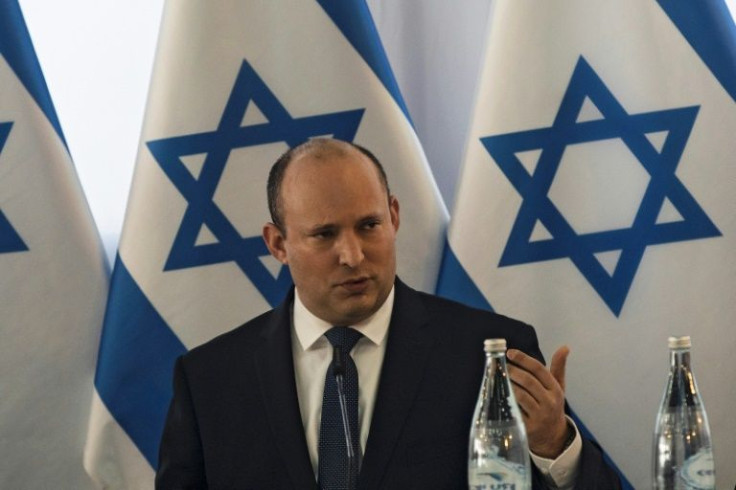Bennett Makes It Merry In Golan Heights Over Pariah Syria, Iran Nuclear Deal

Israel is beefing up its expansion into the disputed Golan Heights as Syria, from which it captured the strategic plateau in West Asia, has turned a pariah state and the US and the world community needed the Jewish state to make a breakthrough in the ongoing Iran nuclear talks.
This month marked 40 years since Israel annexed the Golan Heights in the 1967 Six-Day War and officially there remains a point of dispute between Israel and Syria, which is facing a bloody civil war for the past decade.
The big-ticket investment plan, covering tourism and housing projects in the sparsely populated Golan Heights, lying less than 100 miles from the Syrian capital Damascus and controlling the flow of water into the Sea of Galilee and the Jordan River, is sure to meet with nationalistic euphoria.
"This is our moment. This is the moment of the Golan Heights," Israeli Prime Minister Naftali Bennett, who leads ideologically disparate eight-party fragile coalition, said at a special cabinet meeting Dec. 26.
Bennett's plan is to build 7,300 settler homes in the region over a five-year period with a $317.3 million investment plan.
"Our goal today is to double the population of the Golan Heights," the right-wing leader said.
At this point of time, there is less possibility for negotiation with Syria, and the international community is hardly expected to come to the rescue of Syrian leader Bashar al-Assad who has already earned a pariah status after the 2011 Syrian war, which is still lingering on.
Bennett said the ongoing war in Syria made the move to increase settlement in the Golan Heights more acceptable to Israel's allies.
Israel's Knesset extended laws over the Golan Heights in 1981 in a move that was derided by the international community as annexation. The Golan Heights are considered occupied territory under international law and UN Security Council resolutions.
The US was the first nation to recognize Israel's sovereignty over the Golan Heights. In 2019, the then President Donald Trump unilaterally recognized the Golan Heights as part of Israel for the first time.
Prior to that, the Golan Heights did not receive much investment as other regions of the Jewish state. The investment plan to fully integrate the region was spearheaded by Prime Minister Bennett after the new US administration decided to stick to the Trump-era policy.
The plan to invest is to provide the region, where around 25,000 Israeli settlers currently live, with the type of infrastructure that can create traction for further development. The aim is to double the Israeli population living in the Golan Heights within five years.
The fertile hillsides of the Golan Heights are occupied by some 23,000 Druze, an Arab minority who remained on the land after it was seized by Israel who practice an offshoot of Islam, and some of them still sulk to accept the Israeli citizenship.
While flaying the move by Israel in strong terms, an official statement by the Syrian government addressed the Syrian Arabs living in the Golan Heights.
"The Syrian government reaffirms its permanent and strong support for its Syrian citizens, the people of the occupied Syrian Golan who resist the Israeli occupation and who reject the annexation decision and the policy of seizing lands by force," a foreign ministry statement said.
The ongoing Vienna talks exerted influence on Prime Minister Bennett's decision to put up more settlement as Iran, Israel's declared arch enemy, and the international community is engaged in talks to revive the 2015 nuclear deal which limits Iran's nuclear program in exchange for relief from U.S., EU, and U.N. economic sanctions.
Israel has sought an immediate halt to the nuclear talks and its top leadership often has hinted at military options to prevent Iran from laying its hands on nuclear weapons.
In a message to the U.S. Secretary of State Antony Blinken, Bennett accused Iran of "carrying out nuclear blackmail as a negotiating tactic," and sought "tough steps" against Iran.
Though not a party to the seven-nation talks, Israel's cooperation is a prerequisite for the successful conclusion of the negotiations. So, the world community was tight-lipped when the Israel PM vowed to make the disputed narrow strip of land in the Levant area "a better place to live in."
Bennett got his timing right.
























